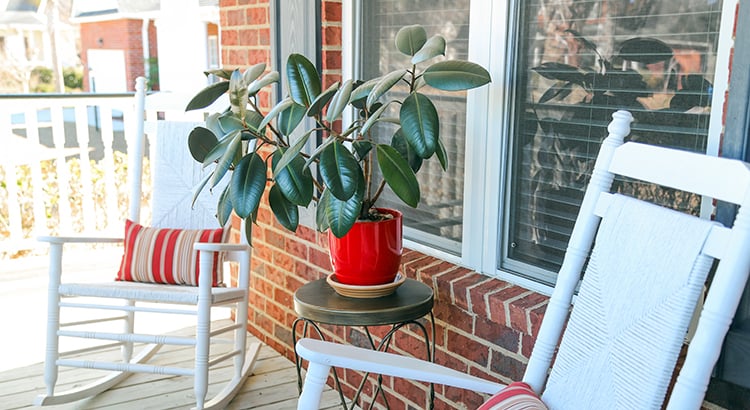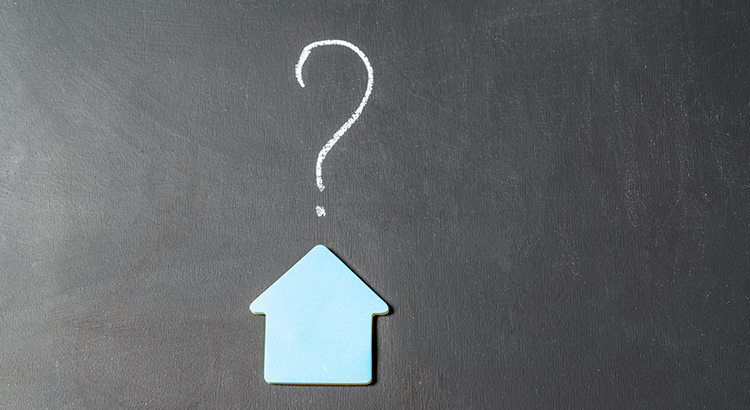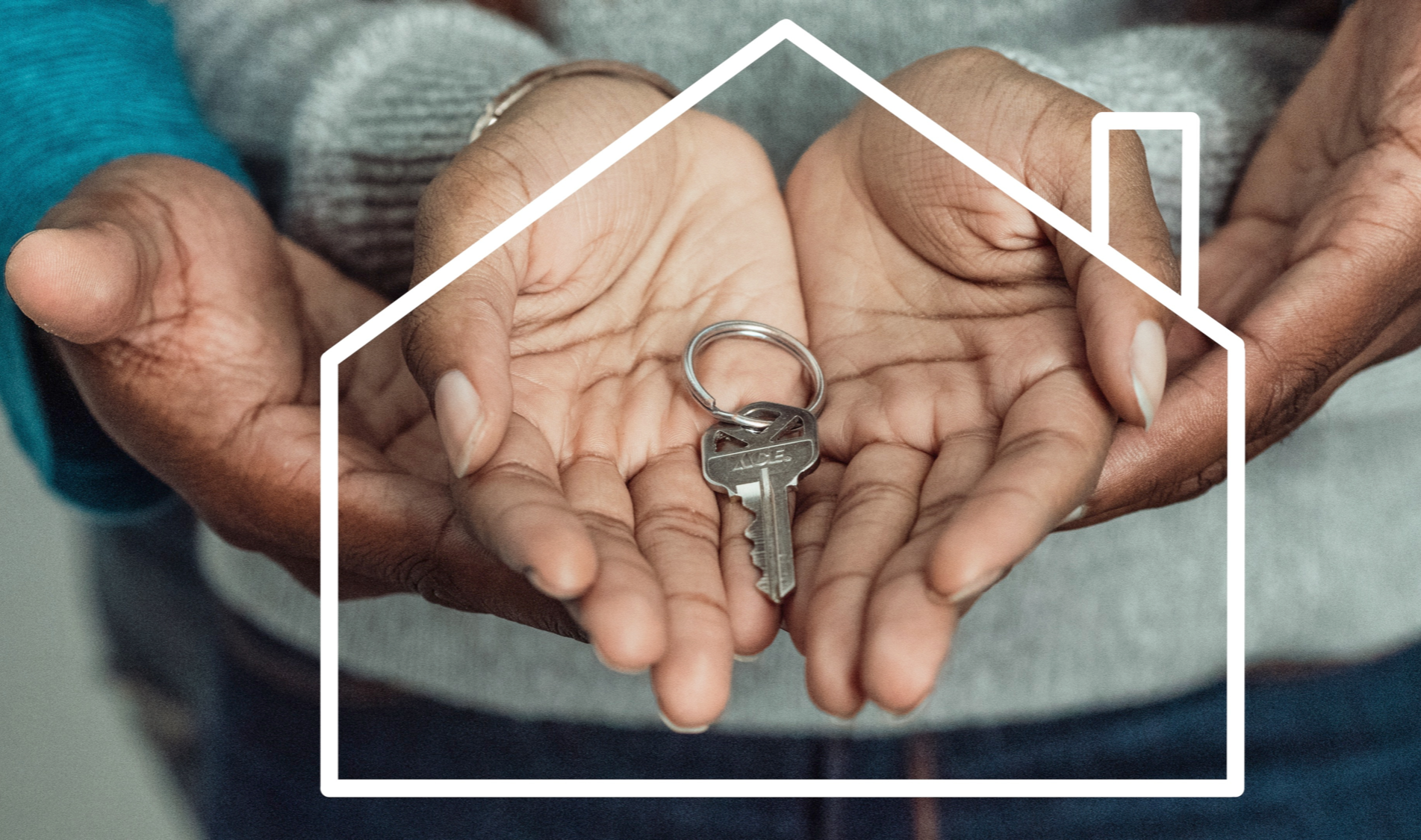YOUR REAL ESTATE RESOURCE
![feature image of Ways To Overcome Affordability Challenges in Today’s Housing Market [INFOGRAPHIC]](https://cdn.chime.me/image/fs/cmsbuild/2023723/22/original_c73fd11b-73c0-4c40-a137-ebd66b7a6a6c-png.webp)
Ways To Overcome Affordability Challenges in Today’s Housing Market [INFOGRAPHIC]
Some Highlights With so few homes on the market right now, widening the scope of your search to include nearby areas could help you find more options in your budget. You can also work with a trusted lender to consider alternative financing options and search for down payment assistance. If you’ve

What’s the Difference Between a Home Inspection and an Appraisal?
If you’re planning to buy a home, an inspection is an important step in the process. It assesses the condition of the home before you finalize the transaction. It’s also a different step in the process from an appraisal, which is a professional evaluation of the market value of the home you’d like

Think Twice Before Waiting for Lower Home Prices
As the housing market continues to change, you may be wondering where it’ll go from here. One factor you’re probably thinking about is home prices, which have come down a bit since they peaked last June. And you’ve likely heard something in the news or on social media about a price crash on the hor
![feature image of Home Inspections for Sellers: What You Need To Know [INFOGRAPHIC]](https://cdn.chime.me/image/fs/cmsbuild/2023418/12/original_67fc943a-c650-46f4-80bb-3161995953ac-png.webp)
Home Inspections for Sellers: What You Need To Know [INFOGRAPHIC]

4 Tips for Selling Your House This Spring
Spring is a popular time of year for home buyers to start searching for their dream homes. With the warmer weather and longer days, it's the perfect time to showcase your property's best features. If you're planning on selling your house this spring, here are four tips to help you make a successful

Welcome Home: A Look Inside 515 Greyhawk Way
Looking for a move-in ready home with plenty of space to relax and entertain? Look no further than 515 Greyhawk Way in Fairburn, GA. This 3 bed, 2 bath home is listed at an affordable price of $344,999 and is sure to impress with its luxurious features and serene surroundings. Step inside and you'l

Why Aren’t Home Prices Crashing?
There have been a lot of shifts in the housing market recently. Mortgage rates rose dramatically last year, impacting many people’s ability to buy a home. And after several years of rapid price appreciation, home prices finally peaked last summer. These changes led to a rise in headlines saying pric

Trying To Buy a Home? Hang in There.
We’re still in a sellers’ market. And if you’re looking to buy a home, that means you’re likely facing some unique challenges, like difficulty finding a home and volatile mortgage rates. But keep in mind, there are some benefits to being a buyer in today’s market that give you good reason to stick w

Homebuyer Activity Shows Signs of Warming Up for Spring
The spring season appears to be warming up in housing as more and more buyers enter the market. And after rising mortgage rates sidelined so many buyers last year, that’s a good sign for sellers. Realtor.com has the latest:“Spring is officially here, and like green shoots emerging from the bleak win

Two Reasons You Should Sell Your House
Wondering if you should sell your house this year? As you make your decision, think about what’s motivating you to consider moving. A recent survey from realtor.com asked why homeowners are thinking about selling their houses this year. Here are the top two reasons (see graphic below):Let’s break th

How Changing Mortgage Rates Can Affect You
The 30-year fixed mortgage rate has been bouncing between 6% and 7% this year. If you’ve been on the fence about whether to buy a home or not, it’s helpful to know exactly how a 1%, or even a 0.5%, mortgage rate shift affects your purchasing power. The chart below helps show the general relationshi

How Homeownership Is Life Changing for Many Women
Throughout Women’s History Month, we reflect on the impact women have in our lives, and that includes impact on the housing market. In fact, since at least 1981, single women have bought more homes than single men each year, and they make up 17% of all households.Why Is Homeownership So Important to

Why Buying a Home Is a Sound Decision
If you’re thinking about buying a home, you want to know the decision will be a good one. And for many, that means thinking about what home prices are projected to do in the coming years and how that could impact your investment. This year, we aren’t seeing home prices fall dramatically. As the year

What’s Ahead for Home Prices in 2023
Over the past year, home prices have been a widely debated topic. Some have said we’ll see a massive drop in prices and that this could be a repeat of 2008 – which hasn’t happened. Others have forecasted a real estate market that could see slight appreciation or depreciation depending on the area o

Leverage Your Equity When You Sell Your House
One of the benefits of being a homeowner is that you build equity over time. By selling your house, that equity can be used toward purchasing your next home. But before you can put it to use, you should understand exactly what equity is and how it grows. Bankrate explains it like this:“Home equity i

2 Things Sellers Need To Know This Spring
A lot has changed over the past year, and you might be wondering what’s in store for the spring housing market. If you’re planning to sell your house this season, here’s what real estate experts are saying you should keep in mind.1. Houses That Are Priced Right Are Still SellingHouses that are updat
![feature image of Where Will You Go After You Sell Your House? [INFOGRAPHIC]](https://img.chime.me/image/fs/chimeblog/20230304/16/original_52670ec0-77ef-4654-bbb3-0ca4cbdb5455.png)
Where Will You Go After You Sell Your House? [INFOGRAPHIC]
Some Highlights If you’re thinking of selling your house, be sure to explore all the options you have for your next home. Both newly built homes and existing homes offer plenty of unique benefits. If you have questions about the options in our area, let’s discuss what’s available and what’s right

What You Should Know About Rising Mortgage Rates
After steadily falling over the winter, mortgage rates have started to rise in recent weeks. This is concerning to some potential homebuyers as the combination of higher mortgage rates and higher prices have made homes less affordable. So, if you’re planning to purchase a home this year, you too may

Should You Consider Buying a Newly Built Home?
If you’re thinking about buying a home, you might be focusing on previously owned ones. But with so few houses for sale today, it makes sense to consider all your options, and that includes a home that’s newly built.The Number of Newly Built Homes Is on the RiseWhile there are more houses for sale r

Why It’s Easy To Fall in Love with Homeownership
No matter how the housing market changes, there are some things about owning a home that never change—like the personal benefits it can provide. When you own your home, you likely feel a sense of attachment because of the comfort it gives and also because it’s a space that’s truly yours.Over the las

What You Should Know About Closing Costs
Before you buy a home, it’s important to plan ahead. While most buyers consider how much they need to save for a down payment, many are surprised by the closing costs they have to pay. To ensure you aren’t caught off guard when it’s time to close on your home, you need to understand what closing cos

How Experts Can Help Close the Gap in Today’s Homeownership Rate
As we celebrate Black History Month, we reflect on the past and present experiences of Black Americans. This includes the path toward investing in a home of their own. And while equitable access to housing has come a long way, homeownership can be a steeper climb for households of color. It’s an imp

Prioritizing Your Wants and Needs as a Homebuyer in Today’s Market
There’s no denying mortgage rates are higher now than they were last year. And if you’re thinking about buying a home, this may be top of mind for you. That’s because those higher rates impact how much it costs to borrow money for your home loan. As you set out to make a purchase this winter, you’

3 Ways You Can Use Your Home Equity
If you’re a homeowner, odds are your equity has grown significantly over the last few years as home prices skyrocketed and you made your monthly mortgage payments. Home equity builds over time and can help you achieve certain goals. According to the latest Equity Insights Report from CoreLogic, th

VA Loans Can Help Veterans Achieve Their Dream of Homeownership
For over 78 years, Veterans Affairs (VA) home loans have provided millions of veterans with the opportunity to purchase homes of their own. If you or a loved one have served, it’s important to understand this program and its benefits. Here are some things you should know about VA loans before you

What’s Ahead for Mortgage Rates and Home Prices?
What’s Ahead for Mortgage Rates and Home Prices? Now that the end of 2022 is within sight, you may be wondering what’s going to happen in the housing market next year and what that may mean if you’re thinking about buying a home. Here’s a look at the latest expert insights on both mortgage rates a

Millennials Are Still a Driving Force of Today’s Buyer Demand
Millennials Are Still a Driving Force of Today’s Buyer Demand If you’re thinking about selling your house but wondering if buyers are still out there, know that there are still people who are searching for a home to buy today. And your house may be exactly what they’re looking for. While the mille

Taking the Fear out of Saving for a Home
Taking the Fear out of Saving for a Home If you’re planning to buy a home, knowing what to budget for and how to save may sound scary at first. But it doesn’t have to be. One way to take the fear out of budgeting is understanding some of the costs you might encounter. And to do that, turn to trus

Should You Still Buy a Home with the Latest News About Inflation?
Should You Still Buy a Home with the Latest News About Inflation? While the Federal Reserve is working hard to bring down inflation, the latest data shows the inflation rate is still high, remaining around 8%. This news impacted the stock market and added fuel to the fire for conversations about a

Two Questions Every Homebuyer Should Ask Themselves Right Now
Two Questions Every Homebuyer Should Ask Themselves Right Now Rising interest rates have begun to slow an overheated housing market as monthly mortgage payments have risen dramatically since the beginning of the year. This is leaving some people who want to purchase a home priced out of the market

